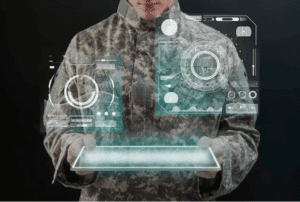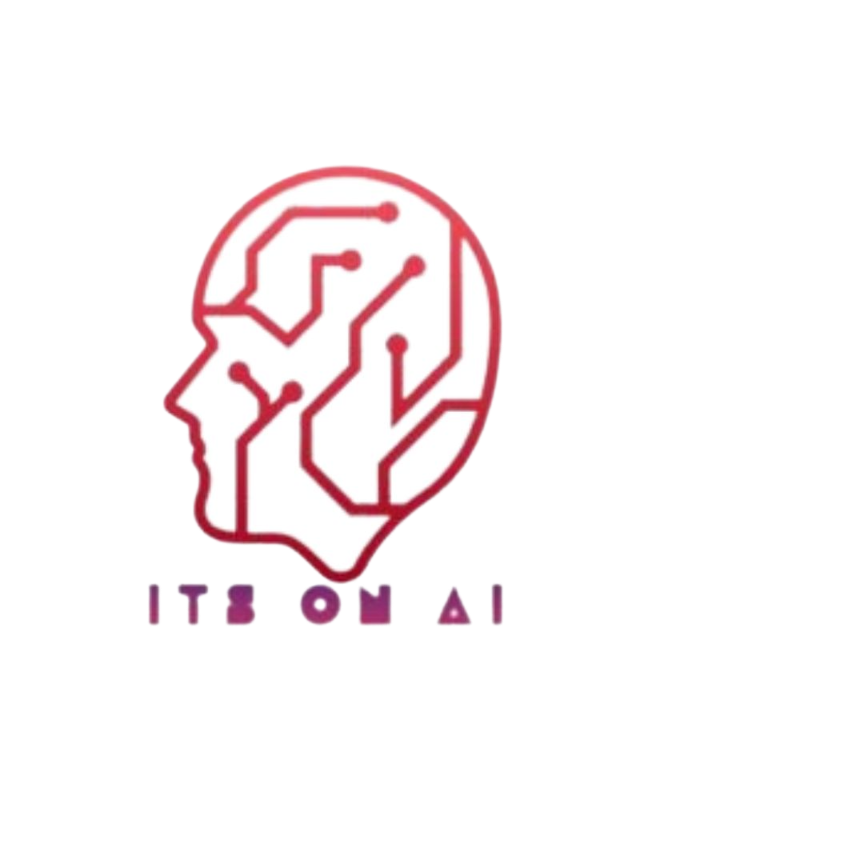AI in Warfare: The Debate Over Autonomous Weapons
The confluence of artificial intelligence (AI) and the theater of conflict has engendered profound ethical dilemmas, inciting a global discourse on the deployment of autonomous weaponry. As technological advancements continue their relentless march, AI’s role in military applications grows increasingly intricate, ushering in a conundrum of ethical adherence to international statutes. In this discussion, we’ll explore the constantly changing landscape of AI in warfare. We’ll also address the ethical dilemmas it presents and the ongoing debates surrounding autonomous weapon systems.
Table of Contents
ToggleThe Moral Predicament
One of the central challenges when it comes to employing artificial intelligence in warfare is the moral predicament it entails. The idea of autonomous weaponry, which are machines that can identify and engage targets without human direction, is deeply intriguing. It raises significant ethical questions regarding the conduct of warfare.
The ethical concerns encompass several facets:
- Absence of Human Accountability: The diminished role of human operators due to autonomous weapons has the potential to erode accountability for battlefield actions. This could raise significant concerns about assigning responsibility in such situations. When machines are tasked with life-and-death decisions, the question of moral responsibility for their actions becomes unclear.

- Potential for Breaches of International Law: AI systems are designed to strictly follow specific rules of engagement. However, amidst the unpredictable conditions of war, they may sometimes not adhere to these guidelines. This can lead to inadvertent violations of international law. This situation raises concerns about unintentional breaches of international law, as AI could misinterpret or incorrectly apply the established rules.
- The Dehumanization of Warfare: The more distant and automated warfare becomes, the simpler it is to dehumanize the adversary and rationalize conflict. This dehumanization could exacerbate the already devastating nature of warfare.
- Civilian Casualties: The precision and efficiency promised by AI-driven weaponry might not always materialize. Inaccuracies and unforeseen consequences could lead to an escalation in civilian casualties.
- Ethical Use of Force: To what extent is the application of force morally justifiable in warfare? Self-governing weapons can potentially execute actions that humans might consider ethically questionable or repugnant.
The ethical concerns highlight the need for a thoughtful and rigorous discussion on AI’s role in warfare. This discussion should prioritize technology aligning with ethical principles and international laws.
Benefits of AI in Warfare
While the ethical concerns associated with AI in warfare are undeniable, there are also noteworthy advantages to consider. When used correctly, these advantages can enhance warfare tactics and strategies. Furthermore, they can help protect the lives of both military personnel and civilians.
- Enhanced Precision: AI can enhance the precision of targeting, reducing collateral damage and the risk of civilian casualties.
- Expedited Decision-Making: AI systems can analyze extensive data and make prompt decisions, potentially saving lives on the battlefield.

- Surveillance and Reconnaissance: Autonomous drones and other AI-driven platforms are capable of conducting surveillance and reconnaissance tasks. These tools provide crucial information while ensuring human lives are not put at risk.
- Augmented Cybersecurity: AI can reinforce cybersecurity efforts by identifying and countering cyber threats more effectively.
- Decreased Risk to Soldiers: The use of AI in autonomous vehicles and drones can minimize the exposure of human soldiers to danger.
- Strategic Advantage: Nations with advanced AI capabilities may gain a strategic edge in modern warfare.
These advantages underscore the potential of AI to enhance military operations, rendering them more efficient and reducing the human toll of armed conflict.
Drawbacks of AI in Warfare
Despite the potential benefits, there are substantial disadvantages to be considered when integrating AI into military operations.
- Absence of Human Judgment: AI lacks the nuanced judgment and ethical considerations inherent to humans. This deficiency can result in unforeseen consequences and moral dilemmas.
- Reliability and Vulnerabilities: Self-governing systems can be susceptible to hacking and may prove unreliable in intricate and dynamic settings.

- Arms Race: The development and deployment of AI-driven weaponry may trigger an arms race. This, in turn, could lead to the widespread proliferation of lethal autonomous weapons.
- Inequality: Advanced AI capabilities are not evenly distributed among nations, giving rise to concerns about a power imbalance in international conflicts.
- Job Displacement: The use of AI in warfare could displace human soldiers and result in job losses in the military sector.
- Erosion of Accountability: Self-governing weapons may erode human accountability in warfare, making it challenging to attribute actions to responsible parties.
These disadvantages underscore the importance of ethical oversight and thoughtful regulation in the development and use of AI in warfare.
The Call for Regulation
Given the ethical and practical complexities of AI in warfare, there is a growing consensus that regulation is necessary. The regulation of autonomous weapons is designed to maximize the advantages of AI in warfare. At the same time, it seeks to protect against ethical lapses and unforeseen outcomes.
- The Campaign to Prevent Lethal Autonomous Weapons: This global coalition of non-governmental organizations advocates for a proactive ban on fully autonomous weapons. They argue that the use of lethal AI should remain under meaningful human control.

- The United Nations: The United Nations has engaged in discussions about autonomous weapons within its Group of Governmental Experts on Lethal Autonomous Weapons Systems. These deliberations seek to formulate international standards and norms for the responsible use of AI in warfare.
- National Legislation:
Some countries have already put forth or implemented laws to oversee the use of AI in warfare. These laws often emphasize the need for human oversight in making lethal decisions and demand greater clarity in AI systems.
- Ethical Frameworks: Military organizations and tech companies are starting to create ethical guidelines for AI in warfare. Their goal is to ensure that this technology aligns with both international laws and ethical norms.
Regulation is essential to prevent unchecked development and deployment of AI in warfare. A well-defined framework can assist in ensuring that AI is used responsibly and in harmony with international laws and ethical principles.
The Path Forward
The debate concerning AI and ethics in warfare is far from resolved. Charting a path forward that balances the advantages of AI with the ethical concerns is a complex and ongoing process. Here are some key steps that can guide this discussion:
- International Collaboration: Collaboration among nations, organizations, and experts is imperative to establish a shared comprehension of the ethical implications and regulatory frameworks for AI in warfare.
- Transparency: Transparency in the development and deployment of AI systems in warfare is pivotal. This includes revealing the capabilities and limitations of self-governing weapons.
- Ethical AI Design: Engineers and developers should prioritize ethical considerations in the design and programming of AI for warfare, ensuring alignment with international laws and principles.

- Meaningful Human Control: Any use of self-governing weapons should guarantee meaningful human control over critical decisions to prevent the erosion of accountability.
- Public Awareness: Raising public awareness regarding the ethical issues and potential consequences of AI in warfare is crucial to garner support for responsible use and regulation.
- Continuous Evaluation: As AI technology advances, the ethical implications and regulations must evolve to address new challenges and concerns.
The debate on AI and ethics in warfare is intricate but indispensable for the responsible advancement and utilization of AI in military contexts. Achieving a balance between the advantages of AI-driven warfare and the ethical dilemmas it poses necessitates a multifaceted approach involving international collaboration, regulation, transparency, and ongoing assessment.
Conclusion
AI and ethics in warfare constitute a multifaceted and ongoing discussion. The introduction of self-governing weapons presents both advantages and disadvantages, accompanied by profound ethical concerns. The call for regulation and ethical oversight is gaining momentum, with international organizations, nations, and advocacy groups striving to achieve a balance between the benefits of AI in warfare and the need to uphold ethical principles.
The way ahead lies in sustained collaboration, transparency, ethical design, and the preservation of meaningful human control over AI-driven warfare. As technology continues to advance, the ethical framework must adapt and evolve to ensure that AI serves as a positive force in the realm of warfare. The intricate interplay of AI and ethics in warfare demands our thoughtful consideration and responsible action to safeguard the future of conflict and peace.


